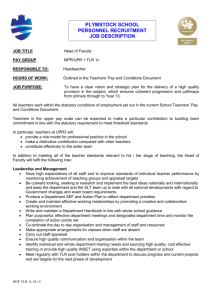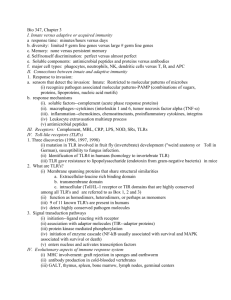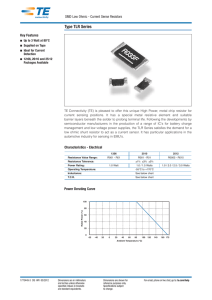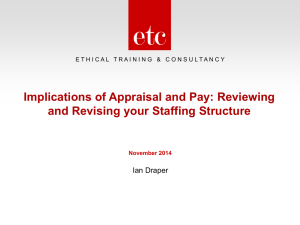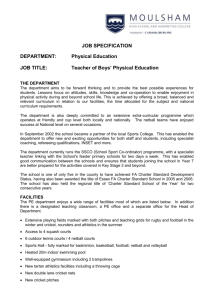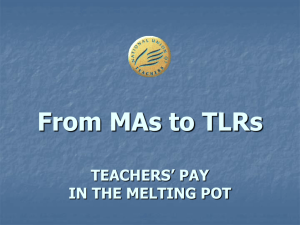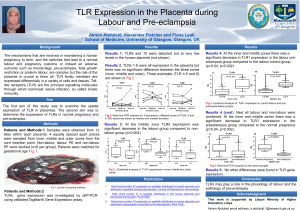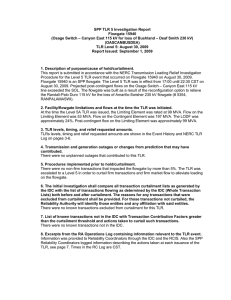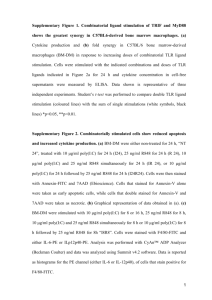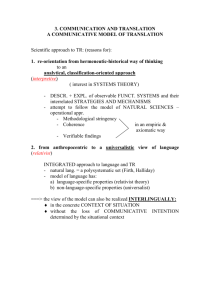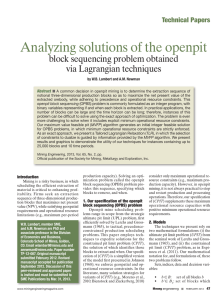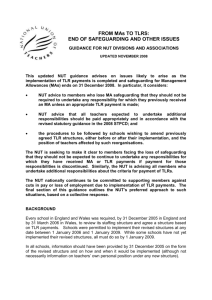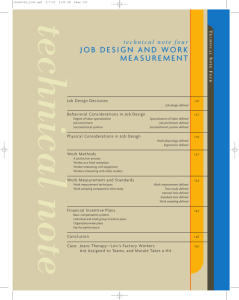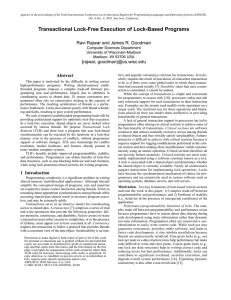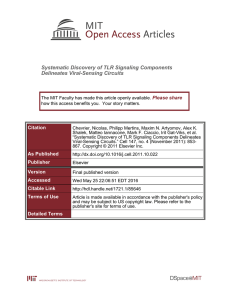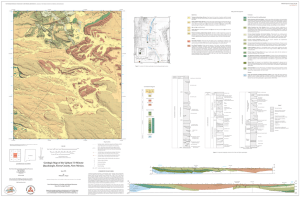subject co-ordination and tlr payments in primary schools
advertisement
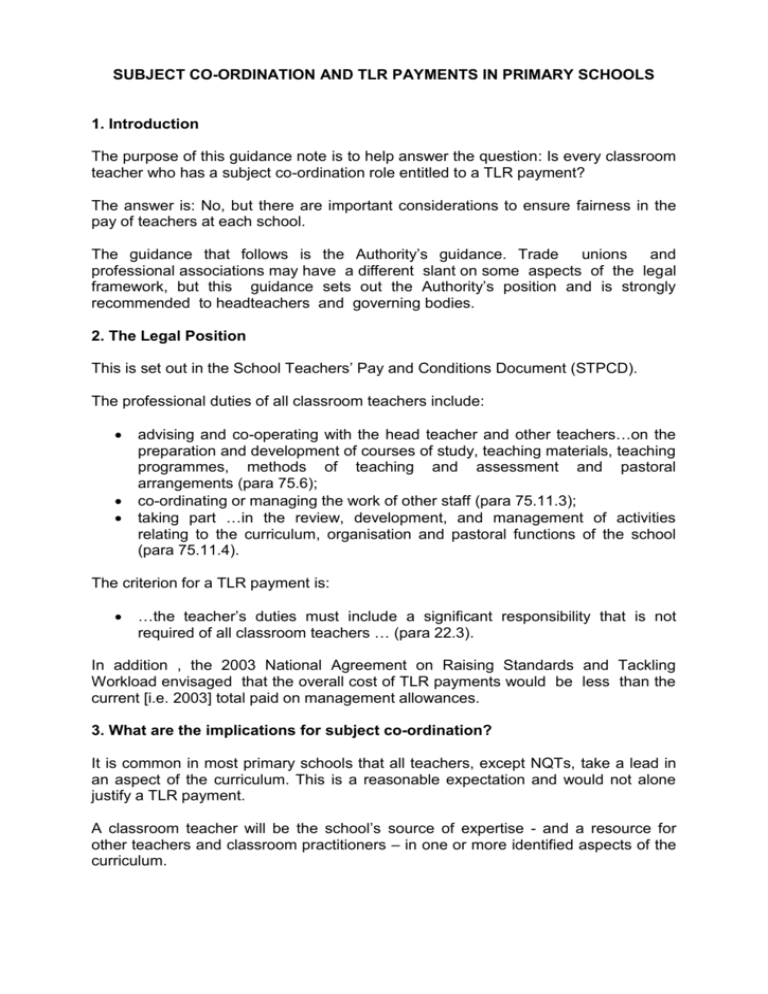
SUBJECT CO-ORDINATION AND TLR PAYMENTS IN PRIMARY SCHOOLS 1. Introduction The purpose of this guidance note is to help answer the question: Is every classroom teacher who has a subject co-ordination role entitled to a TLR payment? The answer is: No, but there are important considerations to ensure fairness in the pay of teachers at each school. The guidance that follows is the Authority’s guidance. Trade unions and professional associations may have a different slant on some aspects of the legal framework, but this guidance sets out the Authority’s position and is strongly recommended to headteachers and governing bodies. 2. The Legal Position This is set out in the School Teachers’ Pay and Conditions Document (STPCD). The professional duties of all classroom teachers include: advising and co-operating with the head teacher and other teachers…on the preparation and development of courses of study, teaching materials, teaching programmes, methods of teaching and assessment and pastoral arrangements (para 75.6); co-ordinating or managing the work of other staff (para 75.11.3); taking part …in the review, development, and management of activities relating to the curriculum, organisation and pastoral functions of the school (para 75.11.4). The criterion for a TLR payment is: …the teacher’s duties must include a significant responsibility that is not required of all classroom teachers … (para 22.3). In addition , the 2003 National Agreement on Raising Standards and Tackling Workload envisaged that the overall cost of TLR payments would be less than the current [i.e. 2003] total paid on management allowances. 3. What are the implications for subject co-ordination? It is common in most primary schools that all teachers, except NQTs, take a lead in an aspect of the curriculum. This is a reasonable expectation and would not alone justify a TLR payment. A classroom teacher will be the school’s source of expertise - and a resource for other teachers and classroom practitioners – in one or more identified aspects of the curriculum. However, a classroom teacher cannot be held accountable for the quality of the work of pupils (other than his/her own) or the quality of the work of other staff, unless he/she gets a TLR payment for a post of responsibility. The scrutiny and comparison of pupils’ work across more than one class, and the performance management of teachers must be responsibilities to be taken either by a classroom teacher whose job attracts a TLR payment or by a teacher on the leadership scale (who may be the Headteacher). Typically , a classroom teacher without a TLR payment will co-ordinate, say, history in the school; a key stage co-ordinator with a TLR payment will be accountable for standards of pupil achievement ; performance management of teachers will fall to a member of the school’s leadership team. There are many other organisational models that can be devised, but the hierarchy of roles linked to pay needs to be clear and fair. 4. Further Advice For schools that subscribe to the Comprehensive or Personnel Advice service in CSF, further advice is available from your HR Officer/ HR Manager. :
